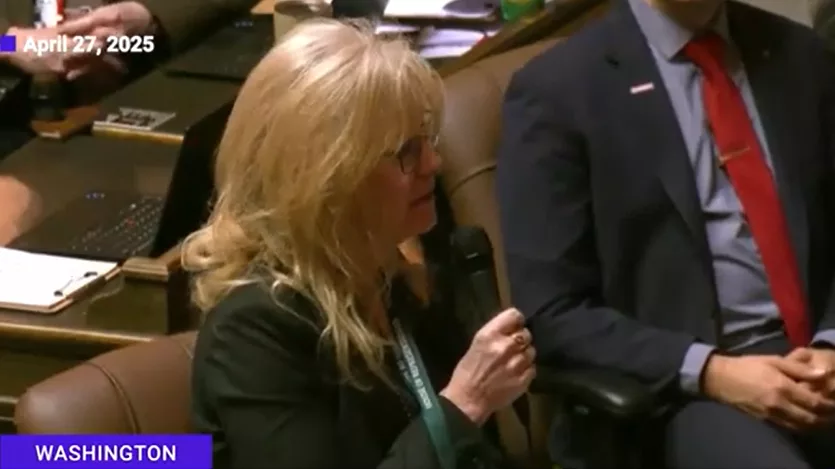OLYMPIA, WA – Starting this summer, litterbugs in Washington state caught leaving trash in public places will be fined more than double the current amount under a law passed by the Washington State Legislature on Sunday.
Engrossed Substitute House Bill 1293, approved by lawmakers on the last day of session, increases the penalty for littering from $50 to a Class 2 civil infraction, which carries a penalty of $125 for improperly getting rid of a cubic foot or less of material.
If caught leaving trash on a state highway, litterers could be hit with a $93 penalty, for a total of $218. Cities and counties may also charge a fine on top of that.
The bill also extends the deadline – from Jan. 1, 2026, to Jan. 1, 2028 – for retailers to offer plastic bags with a minimum allowable thickness of at least 4 mils at an increased cost of 12 cents a bag, up from the current 8-cent charge. A “mil” is a unit of thickness equal to one thousandth of an inch.
According to the Washington State Department of Ecology, tens of millions of pounds of litter accumulate along Washington’s roads and interchanges every year. Public areas like parks, recreational spaces, and rest areas see another 11.6 million pounds of litter annually.
Rep. Mark Klicker, R-Walla Walla, is the main sponsor of the bill.
“Right now, Washington state has 42% more litter than the national average,” he said during a January hearing on the bill in the House Environment & Energy Committee. “That’s 73,000 pieces of garbage per mile, 1,600 pounds per mile. Last year, 38 million pounds of litter were deposited across the state of Washington. We only picked up 6 million pounds.”
Various litter cleanup groups, including the Ecology Youth Corps and Adopt-a-Highway programs, spent more than 182,000 hours picking up trash along Washington highways in 2023, according to the Department of Ecology, which removed a small fraction of the blight.
The bill also sets up a task force of experts, including agencies and business associations, to develop solutions to the litter problem.
Rep. Mary Dye, R-Pomeroy, co-sponsored the bill.
“We have a litter tax that’s supposed to address litter. We also have a civil penalty, and it’s never used,” Dye told The Center Square in the House wings ahead of the bill’s final passage. “We fought to have it raised so it’s more consequential to dissuade people from littering.”
Dye said the bill will direct the Department of Ecology to use a greater portion of the litter tax, which is paid by food producers on packaging, for litter cleanup.
“They [Ecology] take two-thirds or three-quarters of the litter tax revenue for advertising on recycling and behavior change, and they only use $2-3 million at most for picking up litter along our highways and not even making a dent in it,” she said.
Dye said some states are doing a much better job at litter cleanup.
“I was down in Arizona and there wasn’t a piece of litter anywhere, not even a gum wrapper,” she said. “The way they do it is they have a public-private partnership with these emergency response pickups that they run 24-7. They help at accident scenes, but when there isn’t an accident, they pick up litter, and it’s funded by Geico and the state. When they finish at an accident scene, there isn’t anything left; no broken glass, there’s not a hubcap, nothing, so why can’t we do that?”
Rep. Beth Doglio, D-Vancouver, who chairs the House Environment & Energy Committee, worked with Dye after the bill was amended in the Senate to remove the task force provision and increase the plastic bag fee to 12 cents by Jan. 1, 2026. House members objected to the amendments, and they were removed.
“The body across the rotunda did make some changes, and this bill has been ping-ponging a bit,” she said. “It’s been a challenging bill.”
Rep. Fitzgibbon, D-West Seattle, told The Center Square that the bill, as passed in the final hours of the session, was a good example of how Democrats and Republicans can work together.
“All worked really hard on that compromise, and I think that’s a really good show of bipartisanship on the litter issue,” he said.
The Center Square contacted the Department of Ecology for comment on the bill.
“Littered debris from unsecured loads was responsible for 337 crashes and 32 injuries last year,” said Dave Bennett, with the Solid Waste Management program at the Department of Ecology. “The litter bill passed this session amended the penalty for littering from a class 3 to a class 2 civil infraction. We believe increasing penalties is an effective deterrent to littering.”
He continued: “Since the carryout bag law went into effect in 2021, the number of plastic bags used in Washington has decreased. However, the amount of plastic used, by weight, has increased. The delay in the bag thickness increase to 4 mil will result in reduced plastic use and more time to study if thicker bags are sufficiently reused to offset their increased weight.”
The bill now goes to Gov. Bob Ferguson for his signature.
